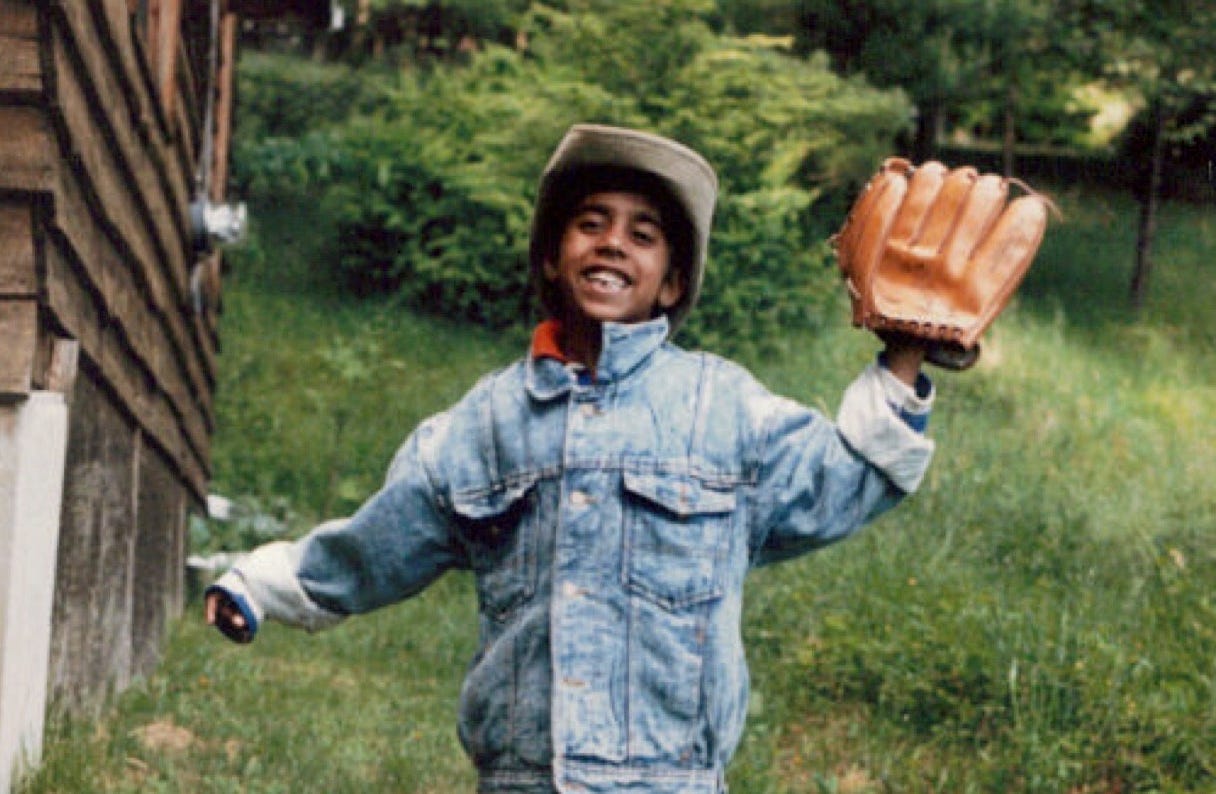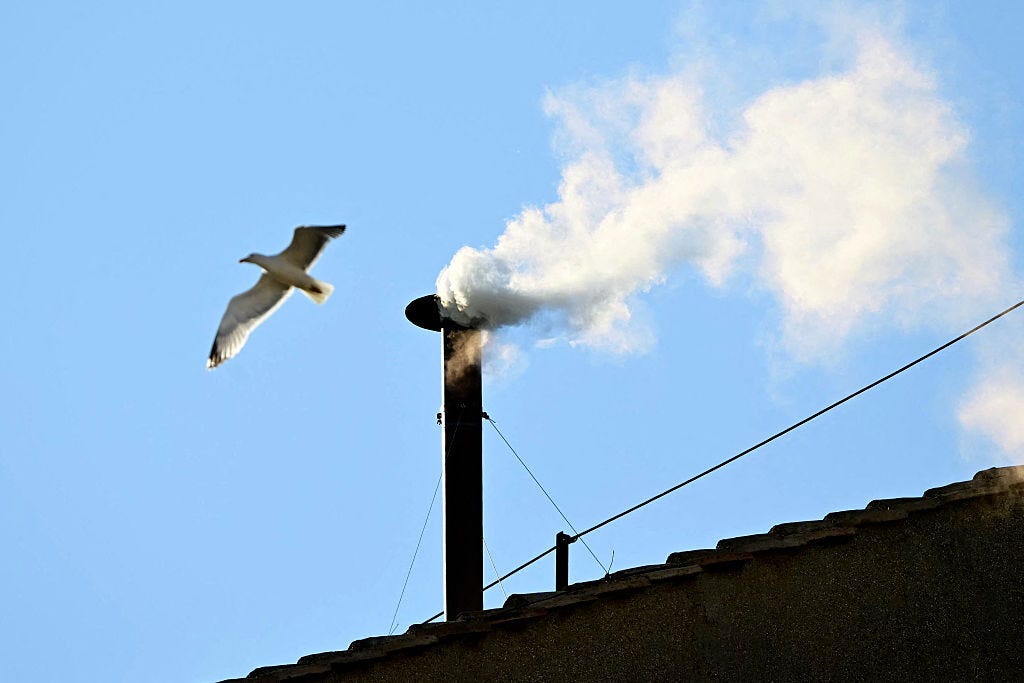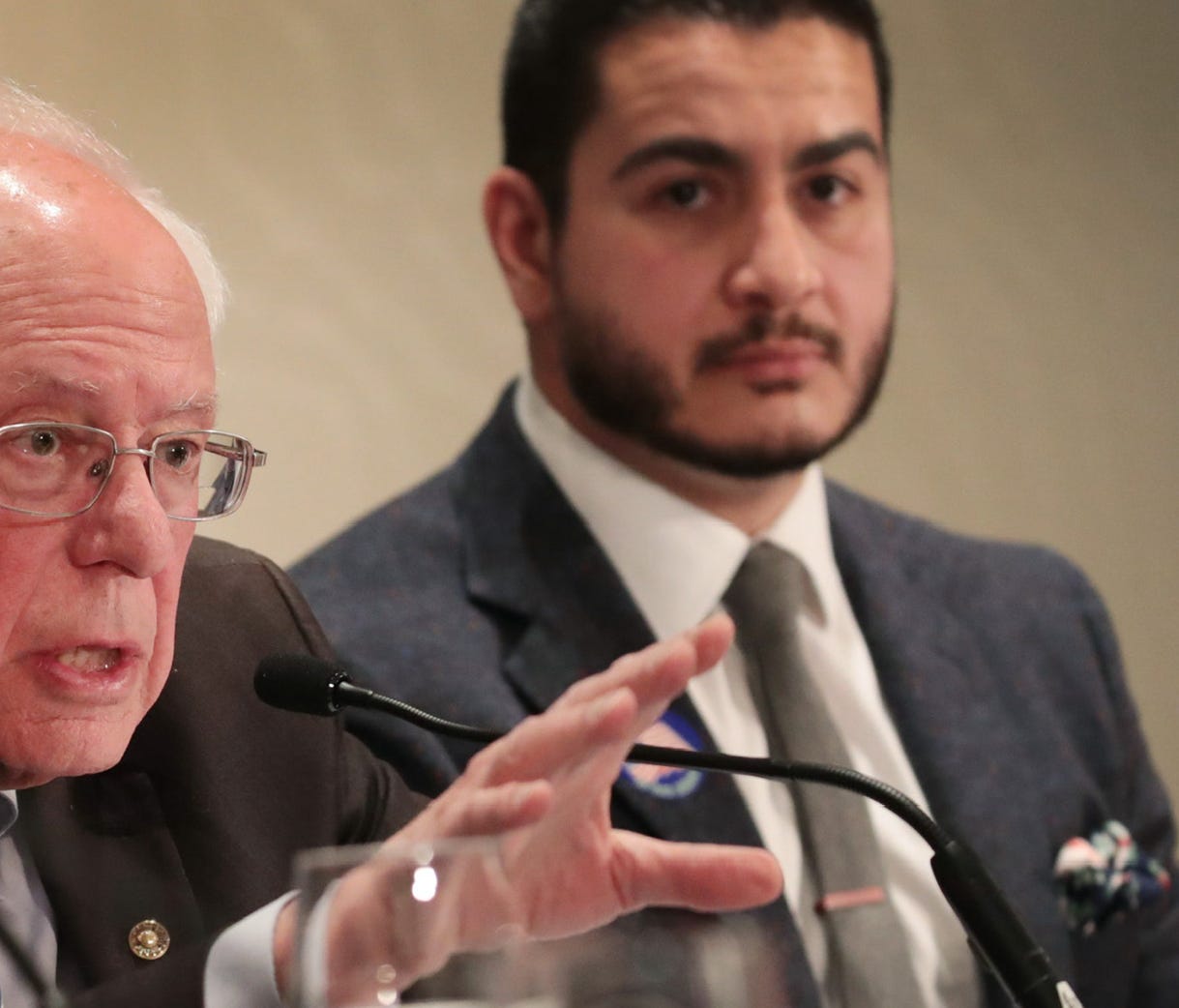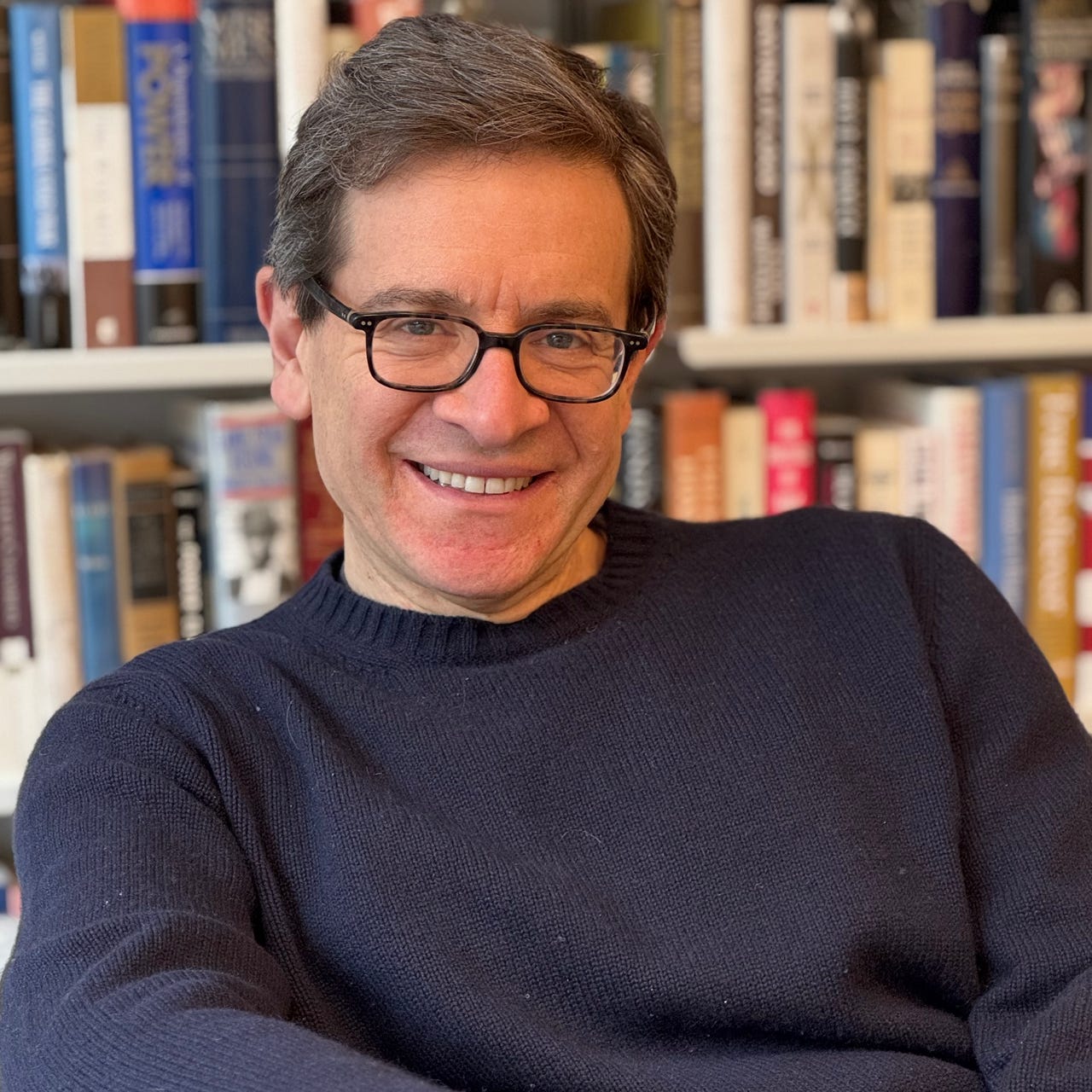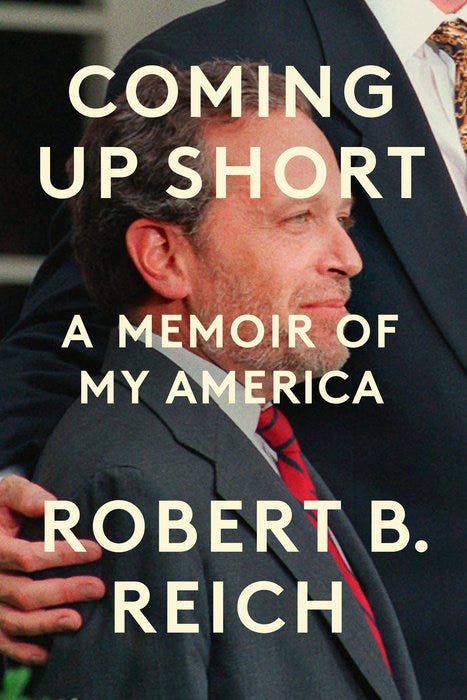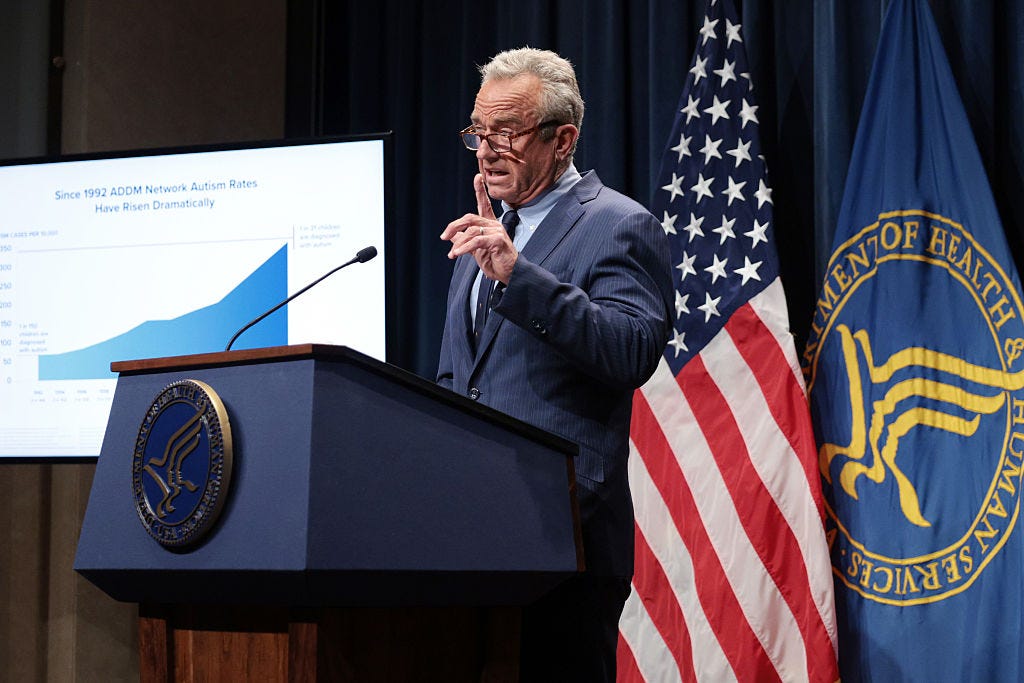Here is a strange thing about politics. It’s a competitive arena in which people win by distinguishing themselves from others. And it’s an arena so lacking in originality. How often do you hear a political leader say something truly inspired, or even just slightly fresh? How often do you notice them actually thinking out loud, the mind still active, still with questions, not answers given to them on Post-It notes by an aide?
It is rare enough that, when it happens, it sometimes takes me a second to realize it. But that’s what happened when I interviewed Dr. Abdul El-Sayed. He is a doctor and public health professional in Michigan who ran unsuccessfully for governor in 2018 and is now running for the U.S. Senate.
What took me time to register was that El-Sayed was doing something more interesting than explaining why he should win his primary. He was laying out a vision for how America can finally be done with Trumpism. Like, actually done.
I don’t think I’ve heard these ideas put together like this in a package before. Each one will have its share of critics. But I think the whole package is worth a look.
The bottom line is this. A lot of what Democrats have ended up offering is contempt for Trump voters and moderate policy ideas. Dr El-Sayed is suggesting a reversal on both counts: radical empathy for Trump voters (which will rankle progressives) and radical change to eradicate the social conditions that enabled Trump (which will rankle moderates). Let them be rankled.
1. The bully and the posse
Growing up with the name Abdul, the son of immigrants from Egypt, El-Sayed knew a thing or two about bullying.
What he sees in Trump is a bully par excellence. But bullies are often secretly weak, El-Sayed observed. What props them up is their posse. Trump’s posse is millions of voters. Without their allegiance, he is a childhood-scarred, semi-literate, narcissistic bully halfwit. With their allegiance, he has a path to making himself Caesar.
El-Sayed argues, therefore, that the pro-democracy movement must obsessively seek to separate the posse from the bully. Which means adopting a posture that some fellow Democrats may not like: showing what he calls “radical empathy” for Trump voters, and viewing the choice millions made as an expression of desperation in an unresponsive system, a shout into the void.
That means not lapsing into the condescension toward lay voters that feels so satisfying and, oftentimes, so justified. It means not calling them Magats and brainwashed and irredeemable racists all. It means strategically biting your tongue and opening your arms. For winning’s sake.
Confront the bully. But woo the posse.
Share
2. Don’t prove them wrong. Get them to right
Winning movements don’t humiliate potential followers. They fix them a drink.
Trump’s chaotic and economy-quaking opening months are already causing lots of pain for his own supporters, let alone all the other people in his policy crosshairs.
Open any social media site, and what do you see these days? Gleeful Democrats sharing stories of MAGA types now being hurt by the policies they voted for.
Understandable psychologically? Yes. Smart politically? No. Not even a little bit.
Dr. El-Sayed framed the approach he favors instead succinctly: “We’ve got to get folks to being right, not prove them wrong.”
What’s the difference? It’s about creating, he says, “a space within which you felt safe enough…to say, you know what?, I made a mistake.”
So next time you hear a veteran who voted for Trump complaining about benefit cuts, or a shopkeeper complaining about tariffs, or a CEO complaining about the stock market, resist the temptation to gloat. If you want to save your country from hell, invite these potential newcomers to the pro-democracy cause in. Pour them a drink.
Subscribe now
3. America is good, actually
In some of the progressive circles Dr. El-Sayed travels in, well-earned critiques of American policy and history can sometimes devolve into contempt for America.
Progressives have a patriotism problem, often conceding the flag to those who would break the country rather than share it. They become so consumed with what is wrong with the country that they forget to say whether there is anything they love about it, and they leave the impression, sometimes true, sometimes not, that they think it irredeemably flawed, rotten at the root.
This is fine for your academic seminar. But please keep this pose out of politics. Because it’s risking the republic itself and plays right into Donald Trump’s hands.
Dr. El-Sayed, as a child of Egyptian immigrants, has a way into this issue that is compelling and worth listening to. He knows all the critiques leveled at America; he levels many of them himself. But his dualness — being from here and being from there — gives him another way of seeing.
He spoke in our conversation about going back to Egypt in his youth. He would sit with his grandmother who, he said, half-jokingly (or maybe not?), would sit with him and tell him that this cousin of his was better looking than Abdul, and this one more athletic, and this one smarter. But you know what Abdul had, his greatest gift that would matter more than any of these others? He would soon be leaving Egypt.
It’s a bittersweet truth that many of us with similar experiences of dualness know from childhood. And many of us who, like El-Sayed, would grow up to have criticisms of how America functions would also, like El-Sayed, never forget that America has real and profound gifts, that it offers many, many people — not enough, but more than most places — life chances and an opportunity to flourish and create and speak and become the fullest version of yourself. That this is a great country, which is, sadly, language many progressives would find way too cringe. Enjoy autocracy, guys!
What El-Sayed reminds us is that to be a progressive who comes partly from somewhere else can be to hold two competing ideas in tension: that America is flawed, and is built on ideals and ways rare in history and worth defending.
“America sucks” is a lazy shrug too often heard in progressive organizing spaces, and it is weirdly provincial in its obliviousness to how life is in other places around the world, and what El-Sayed is pointing toward instead is a progressive patriotism.
“I love America because I know exactly what my life would have ended up as if I didn’t, but for the accident of history, get to grow up here,” he told me. And: “My critiques about America are about the difference between what she gave me…and what she has not given too many kids.”
His advice to Democrats and progressives: “Wrap yourself in the flag as you demand the flag represent the things that you believe are best about this country.”
Leave a comment
4. Fighting Trump isn’t enough. Win the peace
Since Inauguration Day, I, like so many of you and so many across the country, have argued that Democrats need to show fight.
Boneless and skinless is fine for chicken thighs. It’s not adequate for a party that purports to be interested in beating back an attempted authoritarian breakthrough.
But El-Sayed challenged my thinking on the fight point. A former team captain in school sports before he became a Rhodes Scholar and a medical doctor, he pointed to scars on his face and spoke obliquely about not being afraid to fight when needed.
But he argued Democrats need to be more interested in winning the peace than the war: “Nobody fights the war to just win the war. You fight the war to win the peace.”
What he means is remaining focused on healing the causes of the pain that made Trump possible, instead of over-fixating on Trump as the sum total of the ill.
The mantra to fight more and fight harder, which I have touted as much as anyone, risks fetishizing fight for its own sake. The real goal, El-Sayed says, must be creating conditions where the fighting is unnecessary.
And how do you win the peace?
5. The age of insecurity
There are a lot of ways to frame the times we live in. But El-Sayed offered one that stuck with me: this is an age of insecurity.
What’s powerful about insecurity as a grand unified theory is that it encompasses all manner of sentiments, from all sections of the political spectrum, some based in reality, others more in fantasy, but all with emotive, often explosive political effect.
Brutal hyper-capitalism creates insecurity. Not being able to afford things creates insecurity. Feeling vulnerable to crime creates insecurity. Feeling deluged across a poorly managed border creates insecurity. Racial and gender progress, when you are not well prepared for your own new role and standing, creates insecurity. New and unfamiliar ideas about history and the meaning of your country create insecurity. New technology and the threat of obsolescence create insecurity. The loss of control over one’s children and their vulnerability to outside influences creates insecurity.
You will no doubt identify with some forms of insecurity listed above, and not with others. El-Sayed’s point is that insecurity in general has been roiling our hearts and politics, and has achieved what he, a public health doctor, calls “epidemic” status.
“The thing about insecurity is that you may have what you need right now, but you’re constantly at risk of losing it.”
So part of winning the peace beyond Trumpism, rather than just making war with Trump, is addressing the roots of insecurity.
And how bold should Democrats be in doing that?
6. Abolish vanilla
Some of El-Sayed’s arguments above — the radical empathy part of his solution — might strike some Democrats as too solicitous of Trump voters, too eager to make accommodations. But El-Sayed is not a mushy moderate. Rather, I think of him as being in the mold of many of the organizers I wrote about in my book The Persuaders: advocating more flexibility on how you reach out to and court moderates and MAGA voters, but more stridency in policymaking.
A lot of what you see from Democrats right now is the opposite: Snideness and condescension toward MAGA types, but mushy moderate policies. El-Sayed wants to flip that script: Gentle, openhearted outreach and aggressive, even radical, policy.
“You can’t beat something with nothing,” he told me. “And, love him or hate him, when it comes to Donald Trump, he’s always saying something. And the problem that folks have with Democrats is that we say nothing, but we say it with a lot of enthusiasm. It’s like somebody screaming ‘Vanilla!’ at you. You’re like, Well, I don’t know, what if I like cookie dough? What if I like cookies and cream? What if I like Rocky Road? The folks are like, ‘Vanilla! vanilla!’”
El-Sayed has advocated aggressive policy responses to America’s overlapping crises — including Medicare for All, which he wrote an entire book about. Whatever you think about individual policy questions, the larger point is worth grappling with: that the proper place for moderation is in the stance one shows to potentially politically adrift Americans. The place for unbending passion is on substantive policy ideas that would drastically change the country, drain some of the insecurity, and therefore heal the conditions that enabled Trump, so that we don’t keep returning to square one.
Share
7. Reclaim common sense
Listening to El-Sayed, it struck me that he was pushing against both his fellow progressives and the more moderate wing of the Democratic Party, in distinct ways.
His message to progressives is to ditch the label. I am referring to him as a progressive, but he didn’t call himself that, although his policy vision lines up with any conventional definition. But he seemed determined to frame ideas like clean air and water, healthcare for all, ending wasteful wars, and such as basic common sense, not radical or out of the mainstream. (Representative Alexandria Ocasio-Cortez has been making similar arguments on her “Fighting Oligarchy” tour stops.)
But he also has a bracing message for those moderates so singularly fixated on Trump that they think the goal of political struggle should be to return America to the day before the golden escalator ride in 2015. “That’s our own version of Make America Great Again. It just happens to be 2015 instead of 1930-something,” he told me.
America wasn’t working for most people in 2015. The way to move past Trumpism is to champion drastically, boldly upending what wasn’t working, and to do so with an openhearted posture toward converts who will have many reasons to seek a new political home in the days that are coming.
Give a gift subscription
Get 20% off a group subscription
Watch my full conversation with Dr. Abdul El-Sayed here:
This post was originally published on The.Ink.
